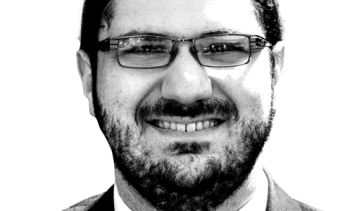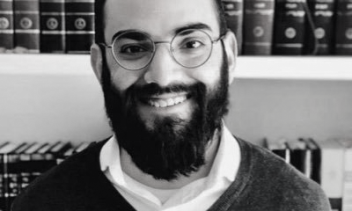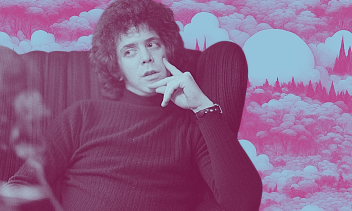This is the first essay of 18Forty’s new “Faith in Reason” series with Rabbi Steven Gotlib, released every month. Sign up for it here.
“Do we really think that God wrote this?” I asked my Hebrew School teacher one day, still a few years shy of my bar mitzvah. We had just read part of Parshat Noach, and I couldn’t help but ask. My teacher gave me a reassuring look before responding. “No,” he said with a smile, “but He inspired it.”
That brief answer, which I would later learn was based on the thought of Rabbi Abraham Joshua Heschel, put to rest any doubts that the 11-year-old me had about the Torah’s divinity. It also gave me a framework that would successfully combat the theological challenges that I faced moving forward… until it no longer could.
I was used to thinking about Judaism, not only because I grew up in a traditional-leaning Conservative home but because of what led to that upbringing. My father’s side of the family was full of post-WWII secular Polish Jews who spoke Yiddish and had a deep sense of cultural connection, though they did not exactly intend to transmit traditional religiosity. My first cousins on that side were raised Reform, and many of them have or had non-Jewish partners. My mother’s side of the family, on the other hand, had already been in America for some time. She was raised with Shabbat, kashrut, and synagogue attendance as part of their familial lifestyle, and her brother eventually became an Orthodox rabbi.
It turns out that when you put those two together, you get the way my two sisters and I were raised. We didn’t keep Shabbat or kashrut in the strictest sense, but we attended synagogue every week, went to Camp Ramah every summer, knew how to read Hebrew, and were generally Jewishly educated. The popular joke about some Jews having three sets of dishes (meat, dairy, and non-kosher) was true in our home.
After experimenting with keeping Shabbat as a teenager for a summer, I decided to embrace broader religious observance and eventually became more active with NCSY. Things started off well—until friends and advisors sat me down to explain that the type of Judaism I was raised with was antithetical to “true” Judaism.
Participation in my kind of Judaism, I was told, would lead to a slippery slope of abandoning the age-old mission of our people. If I really wanted to be religious, they said, I would need to stop attending my family’s synagogue; cease trusting their kashrut; and dedicate time to learn in yeshiva before going to Yeshiva University (nowhere but there would ensure I remain both frum and serious about my secular education). Much pressure and strain were placed on my relationship with my family, who now saw my growing observance as a rebellion—an abandonment of everything they raised me with. My family perhaps rightly felt like I was being pulled away from them.
I became Orthodox because of the warm experience rather than any intellectual commitments. But that warmth had transformed into a hailstorm—and my family and I were suffering because of it.
When I confided this to one of my mentors and sought advice, he would embolden me: “Keep fighting! Soon they’ll give in, and in 20 years you’ll all be laughing about this!” One person even told me that he would pay for my ticket to Israel if I “just got on the plane and apologized to my family when I landed.” That was my last straw. If being an Orthodox Jew could only come through burning bridges with those I loved, the decision seemed easy: Orthodoxy was not for me.
I halted everything then and there: no more keeping Shabbat, no more trying to keep kosher, no more wearing a kippah, and no more wanting to go to yeshiva. I could not sacrifice my family on the altar of my religiosity.
I attended Rutgers University instead of YU but still maintained my sense of Jewish culture by living in a Jewish dormitory, paying for the kosher meal plan, and joining the AEPi fraternity. Shabbat and Yom Tov gradually joined my life again (though not always observed in the traditional way), and I occasionally davened at Hillel (mostly at the Conservative minyan there, but I also dropped into the Orthodox and Reform ones every once in a while). Without the repercussions of reckless advice, and now allowed to naturally develop, my Judaism effectively went back to where it began.
Sometime later, I learned about an opportunity to receive a few hundred dollars to attend weekly Jewish classes organized by a kiruv organization. The teachers immediately identified me as knowing more than anyone else at the seminars and paid me to attend more advanced learning programs at yeshivot in Lakewood, Baltimore, and the like instead. That’s where I discovered a real love for traditional learning. This “second chance” at traditional Judaism rejuvenated me, and my flame was reignited.
But I wanted to kindle it properly this time. I spent the rest of my time in university engrossed in a variety of learning experiences while prioritizing academic Jewish studies (focusing on Bible and philosophy) at university. I devoured books on Jewish thought in the hope of constructing for myself an approach that was, as Rabbi Lamm wrote in Torah U’Madda, “halakhically legitimate, philosophically persuasive, religiously inspiring, and personally convincing.”
By the time I graduated university, my faith had been rebuilt, and I was ready to begin rabbinical school at Yeshiva University’s Rabbi Isaac Elchanan Theological Seminary. If this essay were a Hollywood movie, the credits would roll right about then. But it’s not a Hollywood movie—it’s a reflection on life. And life can be complicated. It would be nice to say that I grew up Conservative, became too Orthodox too fast, lapsed into non-observance, and came out the other end as a good Modern Orthodox rabbi. That isn’t how it happened, though, despite it looking that way to most people.
I’ve never shared this publicly until now, but right when I thought I was finally at the end of my faith journey—finishing rabbinical school, imagining the reality of working as a rabbi—everything I built for myself collapsed. A perfect storm of intellectual and experiential factors combined to give me a taste of truly insurmountable doubt; not just “maybe I should re-evaluate my beliefs,” but a visceral, sudden, realization that what I thought until then simply could not work.
From a young age, I could always just call back to the Torah being divinely inspired (whatever that means) and my emunah would be saved! What I went through, though, was not just a negative emotional response that only required a basic logical correction, but a demonstration of errors in my thinking and a challenge to everything I thought I knew. I realized that I had spent so much time reading and regurgitating what others thought that I had never taken the time to think for myself! In what felt like a single moment, the pure fragility of my faith became apparent to me and I was left with a question: What do I actually believe, and what do I do with that? I had to get to the bottom of things.
I knew I liked Jewish observance and I liked learning Torah, but I also wanted to live a life that was consistent with my genuine beliefs. So I had to, once again, reconstruct what it meant for me to believe in both God and Judaism. I couldn’t just rely on any of the traditional arguments I had familiarized myself with. I needed to challenge my assumptions from their first principles through to the minutiae of my daily practice. That process led me to connect with those who had left Orthodoxy in order to properly weigh the possibilities for myself, many of whom left not because of personal trauma or rebellion against authority but for complex, nuanced, and intelligent reasons. I also started reviewing books about theology, writing my thoughts into articles, and listening to podcasts like 18Forty as I worked through questions that affected everything about the way I lived my life and thought about my Judaism.
That process brought me into direct conflict with Rabbi Dovid Bashevkin over the position that he shared about how religion and rationality ought to interact. Influenced by pragmatism and mysticism alike, his approach was that
our lives are too rich, too nuanced, too multifaceted to reduce ourselves to either exclusively reason or experience. We cannot sacrifice the mystery of human experience on the altar of reasoned calculation, nor can we diminish truth to the subjectivity of what feels right. Learning to balance these two may be the summation of why human life is so unpredictable, impossible, and magical.
It sounded like a perfect, middle-of-the-road approach, but his insistence that reasoning should not necessarily infringe on experience, that “commitment to rationality does not always translate into a fulfilling or meaningful life,” and that “what we do in our study and what we do in the rest of our lives are often not commensurate, because the study is the smaller room in life” rubbed me the wrong way. If one’s life and reason do not align, then they should change their direction. After all, reason is literally what provides us the reason to move in one direction over another. If Orthodoxy is not true, or is only true for pragmatic reasons, then not only is there nothing stopping someone from choosing a different path, but said person may be rationally obligated to do so! The style of rationality that I heard Rabbi Bashevkin present time and again felt to me like holding the door open for those on the way out when a rational, reasoned defense could be possible.
Our conflict turned into a conversation on 18Forty, a friendship, and now an invitation to share the fruits of my personal quest: a step-by-step approach to thinking about Judaism from first principles to lived practice. This series will take readers through my journey of reconstructing faith from the ground up, examining topics like God, morality, free will, the afterlife, the nature of revelation, and more from all across the Jewish tradition(s) and contemporary philosophy. Sharing my personal approach will hopefully be helpful to readers in articulating their own personal theology.
Rabbi Bashevkin wrote that “an unexamined life—devoid of the objective gaze—can be fleeting and fanciful” yet that “without rationality, we can become unhinged, without any formal metric or system to measure our convictions. But what happens after rationality?” This series hopes to demonstrate that there need not be an “after rationality” in our Jewish conversations in the first place. As we embark on this journey, may we all be willing to embrace our questions, and have the courage to walk towards the answers together while maintaining both our reasons for faith and our faith in reason.
Recommended Reading
Contemporary Jewish Theology: A Reader, edited by Elliot N. Dorff and Louis E. Newman
A comprehensive collection of selections from the most well-known and influential Jewish theologians through the latter half of the 20th century.
Jewish Theology in Our Time: A New Generation Explores the Foundations and Future of Jewish Believe, edited by Elliot Cosgrove
A collection of provocative and wide-ranging insights from a cross-denominational selection of living scholars, none of whom have yet published formal works of theology.
The Cambridge Companion to Jewish Theology, edited by Steven Kepnes
An overview of current approaches to Jewish theology from antiquity to the present day, focusing on what Jews believe about God and His relationship to humans and the world.
—
Steven Gotlib is Director of Glebe Shul: The Capital Jewish Experience and Interim Rabbi at the Young Israel of Ottawa.







